
Life Purpose and Personality
So far in our series we have considered 3 aspects that contribute to your Life Purpose - Influences and Roles from your Childhood, your Passions and Interests, and your Talents and Skills. Now we consider another important feature of life purpose, namely your personality.
The word 'personality' has several definitions such as 'the visible aspects of your character', 'your personal identity' and 'your essential character'. In psychology, personality is regarded as the sum total of your physical, mental, emotional, and social characteristics.
However, it's important to know that personality (however it is defined) is not a fixed object. It is a legacy of your experiences of life and can be changed - and indeed it is always changing.
By examining your personality using various tools, you can get a real appreciation of who you are and how it may contribute to your life purpose. It can also guide you if you want to change your personality to meet a defined goal.
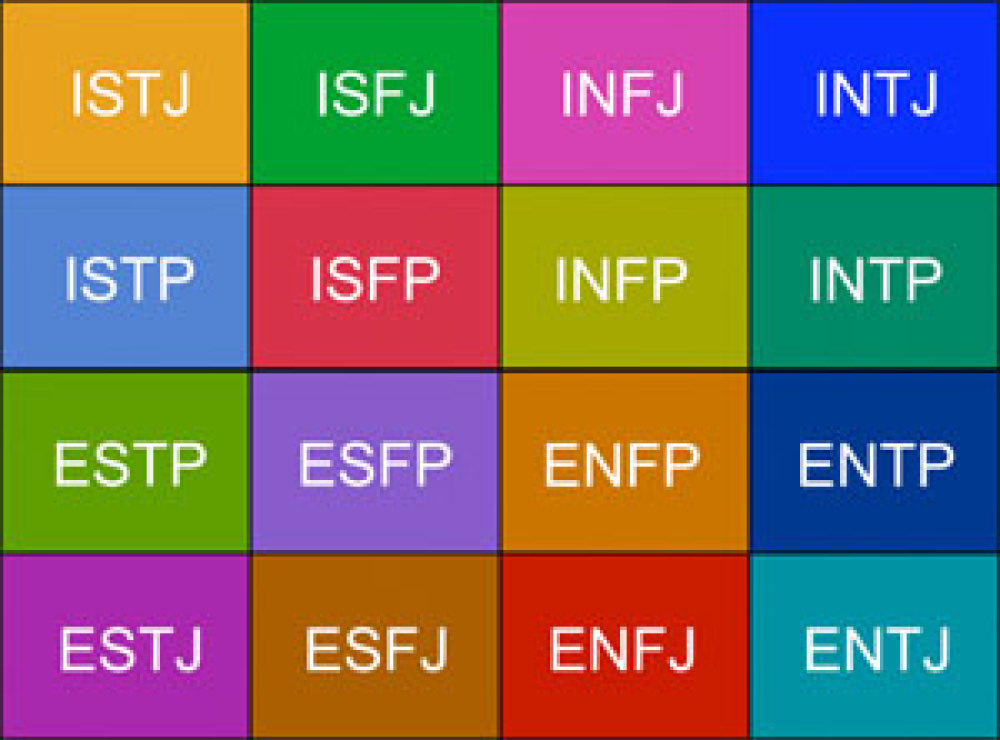
The Myers Briggs Type Indicator (MBTI)
The standard indicator of personality types is the 'Myers Briggs Type Indicator' that you can find here for a fee. This test reveals 16 different personality types based on 4 general parameters.
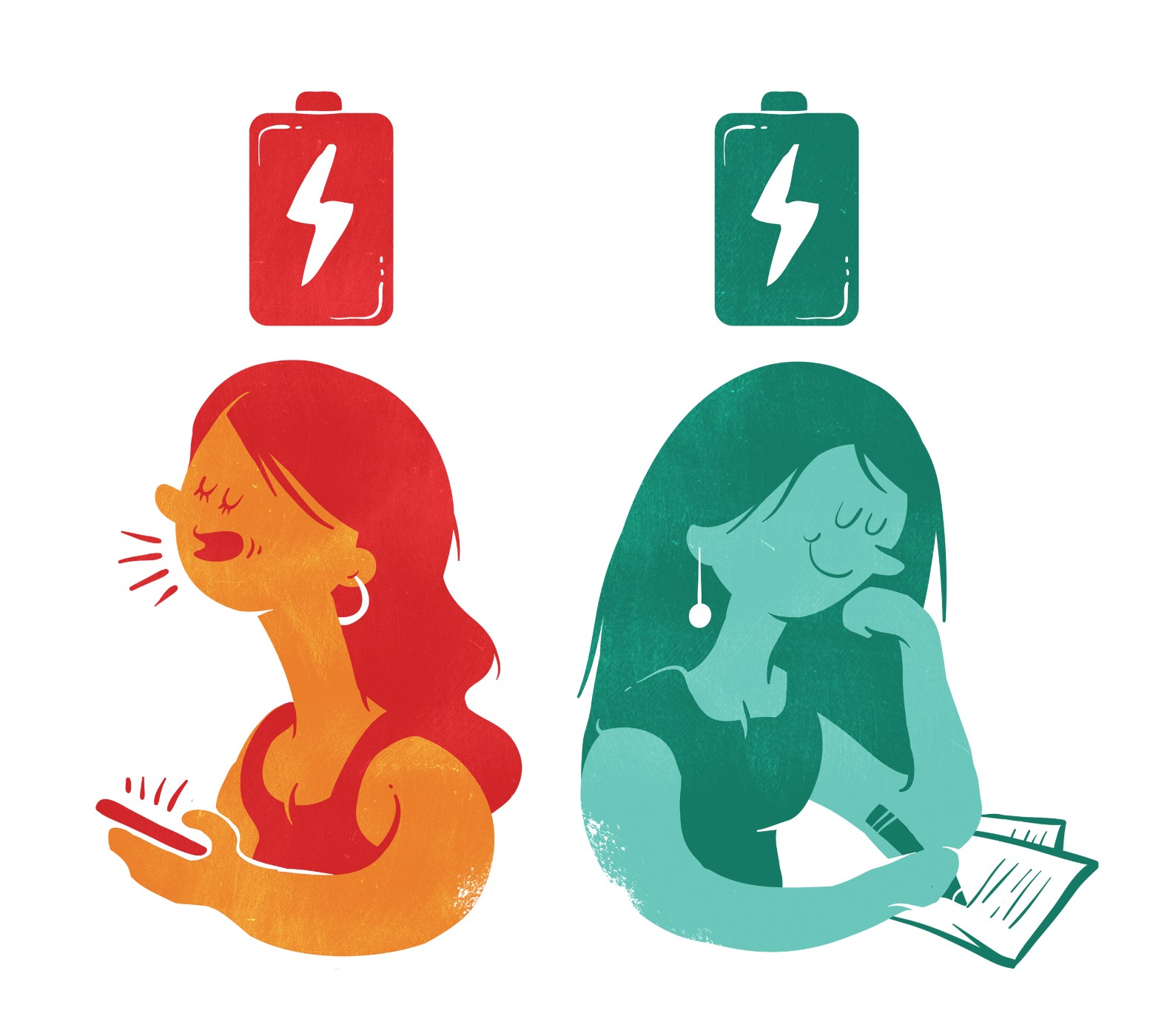
Parameter 1: Introvert vs Extrovert
A common understanding of an Extrovert personality is someone who is very talkative, and an Introvert is someone who is very shy. This is an oversimplification at best. Essentially this parameter describes how we interact with the world and where we direct and receive 'energy' - defined here as the forces that motivate someone.
Extroverts are oriented and focused on the exterior world. As a result they are invigorated by being with others and tend to seek them out. They are typically very active people.
On the other hand, Introverts are directed to their inner world and thus their attention is focused inward. They need a lot of time alone, tend to have a lot of mental activity, and seek to be alone in order to recharge.
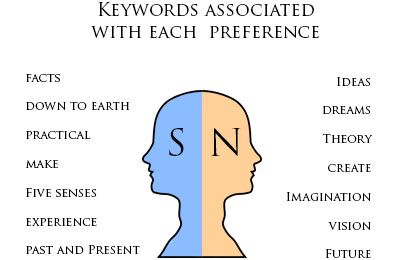
Parameter 2: Sensor vs Intuitor
This parameter describes the type of information we notice.
Sensors seek concrete information and are attentive to what is going on around them. They trust their senses to give them an accurate perception of reality, and tend to have a talent for remembering facts.
Intuitors are concerned with looking for meaning, exploring possibilities and gleaning insights from beyond the basic senses. This is often referred to as intuition or the '6th sense'.
They often speak in metaphors or use figures of speech.
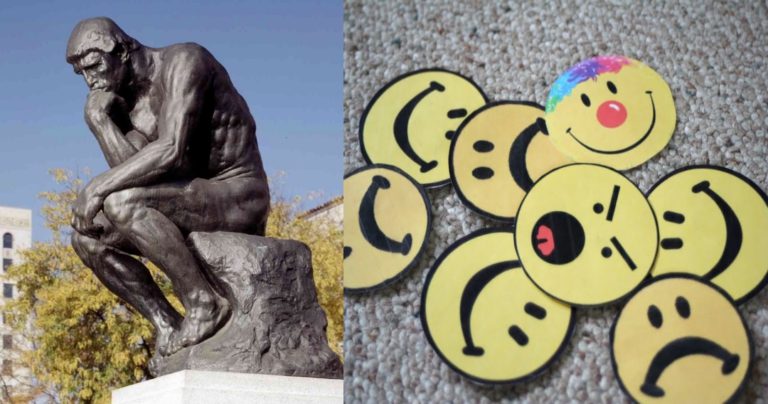
Parameter 3: Thinker vs Feeler
This parameter describes how we make decisions.
If you are a 'Thinker', you tend to be very logical and objective in your decision making. You also tend to be very analytical, and will mostly see things as either black or white with nothing in between.
On the other hand, 'Feelers' make decisions based on their values, such as 'what's right', or what makes them feel good. Often these decisions are based on empathy for themselves or others, and are less based on logic. That does not mean, however, that they are illogical.
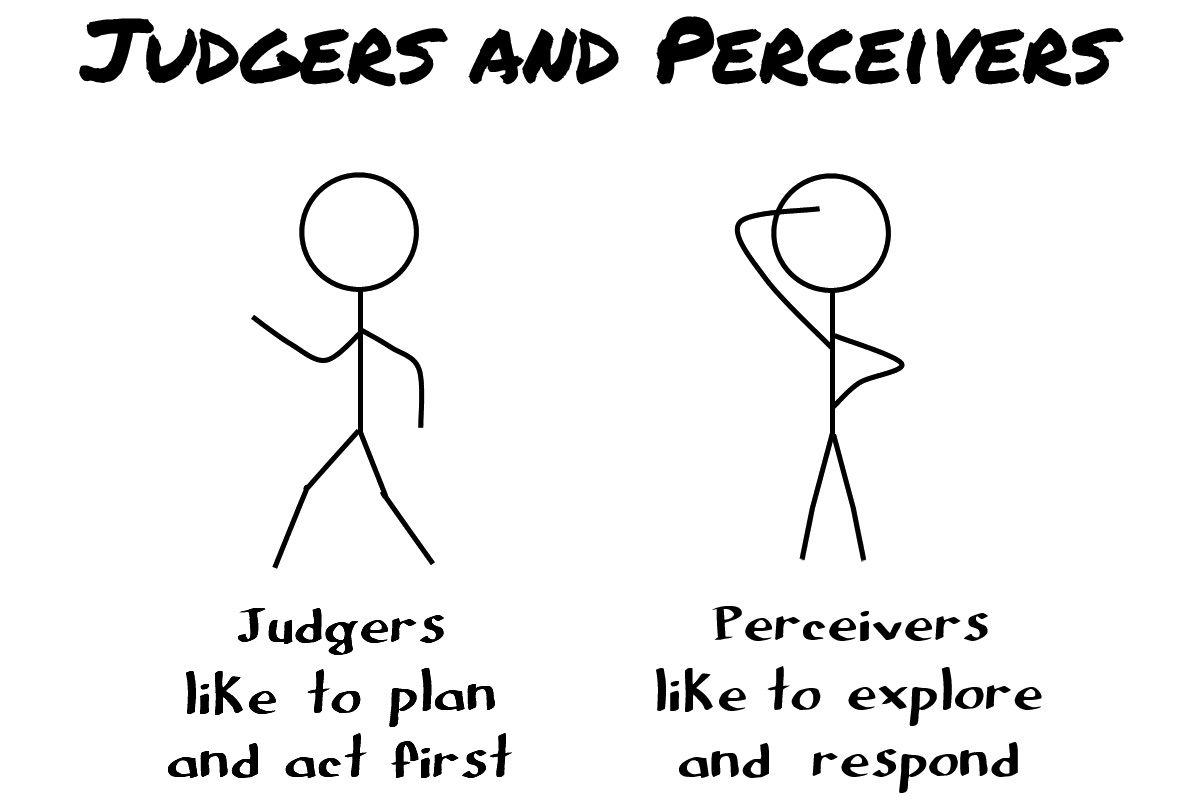
Parameter 4: Judger vs Perceiver
This parameter describes how we prefer to structure our lives.
Judgers tend to be fairly rigid in the way they structure their lives. For instance they are fixated on time and completing processes on time (such as getting the railway station on time).
They also have a compelling need for closure and detest unfinished projects. They also want to know what to expect before undertaking a process such as learning something, and they feel anxious when a decision cannot be made.
Perceivers tend to live spontaneously and flexibly. They tend to be open to new possibilities and can easily 'go with the flow'.
They don't mind leaving something open-ended, or jumping into something without understanding what to expect. Conversely, they feel compromised or trapped when they are forced to make a decision
4 Parameters Combined Make 16 Personality Types
If you remember your math, 16 is the total number of combinations based on 4 parameters - 4x4. For instance, you could have the following types:
ISTJ - Intuitor/Sensor/Thinker/Judger
ISFJ - Intuitor/Sensor/Feeler/Judger
In the above we have substituted 'Feeler' for 'Thinker' to arrive at a second personality type.
To find out your own personality type, please download and answer this quiz, which is a simplified version of the MBTI test. You can find an explanation of each type here. If you would like to do the full MBTI test, please go to this page where you can do it for a fee.
Conclusion
Once you have done this short test and figured out your type, it will provide you with insights into your Life Purpose. Please bear in mind that this is only one of 8 considerations for your Life Purpose, but one that is significant nevertheless.
Coming Next: Coincidences
Previous Article In This Series: Talents and Skills
